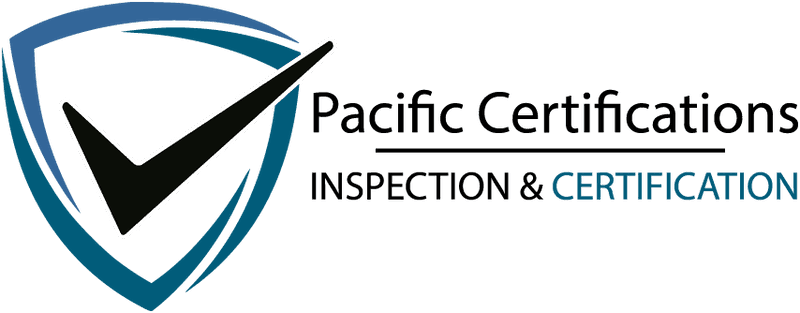ISO Certifications for Professional Services, Requirements and Benefits

Introduction
Professional service organizations operate in knowledge-driven and trust-based environments where accuracy, confidentiality, consistency of delivery, and ethical conduct directly influence client outcomes and long-term reputation. This sector includes management consultants, legal and accounting firms, engineering and technical advisors, IT and digital consultants, research organizations, and other advisory services whose work shapes strategic, financial, regulatory, and operational decisions.
Professional services firms routinely handle sensitive client information, proprietary methodologies, analytical outputs, and confidential records, often across multiple jurisdictions and regulatory frameworks. ISO certifications have therefore become an essential framework for professional services organizations to demonstrate structured governance, controlled service delivery, secure information handling, and operational discipline that goes beyond individual expertise.
In professional services, trust is sustained not by talent alone, but by systems that make quality repeatable
For more information on how we can assist your professional services organization with ISO certifications, please contact us at [email protected]
Quick Summary
ISO certifications provide professional services organizations with internationally recognized frameworks to manage quality through ISO 9001, information security through ISO/IEC 27001, privacy protection through ISO/IEC 27701, business continuity through ISO 22301, occupational health and safety through ISO 45001, IT and digital service reliability through ISO 20000-1, and knowledge governance through ISO 30401. These certifications help professional service providers improve consistency, protect client data, reduce operational risk, and strengthen credibility with enterprise, government, and regulated clients.
Applicable ISO Standards for Professional Services
Below are the most common ISO standards applicable to professional services organizations:
ISO 9001:2015 - Quality Management Systems
ISO 9001 helps professional services firms establish structured workflows for client engagement, service delivery, review, and continual improvement. It supports consistency across projects, consultants, and locations while reducing dependency on individuals.
ISO 27001:2022 - Information Security Management Systems
ISO/IEC 27001 is critical for professional services due to the volume of confidential commercial, legal, financial, and strategic data handled. It provides a framework to manage access control, data protection, secure collaboration, and incident response.
ISO/IEC 27701:2019 – Privacy Information Management Systems
This standard extends ISO/IEC 27001 to address privacy obligations where professional services firms act as data controllers or processors, particularly in advisory, research, HR, compliance, and regulatory work.
ISO 22301:2019 – Business Continuity Management Systems
ISO 22301 ensures professional services can continue during disruptions such as system outages, staff unavailability, regulatory events, or external crises, protecting contractual commitments and client confidence.
ISO 30401:2018 – Knowledge Management Systems
ISO 30401 is highly relevant for professional services organizations whose value is built on expertise, methodologies, and intellectual capital. It supports structured knowledge capture, sharing, validation, and protection across teams and projects.
ISO/IEC 20000-1:2018 – IT Service Management Systems
For firms delivering digital, advisory, or technology-enabled services, ISO/IEC 20000-1 ensures reliability of internal IT systems, client platforms, and service support processes.
Click here to find out more applicable standards to your industry
What are the requirements of ISO Certifications for Professional Services?
Professional services organizations seeking ISO certification must establish and maintain documented policies, procedures, and records aligned with the selected ISO standards. Key requirements include the following:
ISO 9001:2015 – Quality Management Systems
Establish and maintain a documented quality management system
Define service scope, responsibilities, and quality objectives
Control project delivery, review, and client communication
Monitor service performance and client feedback
Implement continual improvement practices
ISO/IEC 27001:2022 – Information Security Management Systems
Establish and maintain an information security management system
Conduct risk assessments for client data and internal systems
Implement access controls and confidentiality safeguards
Secure data shared with clients and partners
Monitor and review ISMS effectiveness
ISO/IEC 27701:2019 – Privacy Information Management Systems
Identify personal data processed during service delivery
Define data protection roles and responsibilities
Implement privacy risk assessments and controls
Ensure compliance with data protection regulations
Manage privacy incidents and data subject requests
ISO 22301:2019 – Business Continuity Management Systems
Identify critical services and dependencies
Develop and test continuity plans
Ensure preparedness for operational disruptions
ISO 30401:2018 – Knowledge Management Systems
Define knowledge management objectives and scope
Capture, validate, and share organizational knowledge
Control use of proprietary methodologies and intellectual assets
Monitor effectiveness of knowledge processes
Tip:Start by mapping your client engagement lifecycle—from proposal and delivery to review, data handling, and knowledge reuse—against ISO requirements to identify gaps early and ensure systems reflect real service delivery.
For further information on how we can assist your professional services organization with ISO certifications, contact us at [email protected].
What are the benefits of ISO Certifications for Professional Services?
ISO certifications are suitable for consulting firms, advisory practices, legal and accounting services, technical consultants, and other knowledge-based service providers. Key benefits include:
Stronger client trust and market credibility through demonstrable governance and consistency in service delivery.
Improved control over service quality and outcomes, reducing dependency on individuals and minimizing variability.
Enhanced protection of confidential client and proprietary information, lowering data security and privacy risks.
Better alignment with enterprise and regulatory procurement expectations, particularly for public-sector and regulated clients.
Improved operational resilience, ensuring continuity during disruptions and high-demand periods.
More effective use and protection of organizational knowledge, supporting scalability and long-term competitiveness.
Professional services are increasingly evaluated using the same governance standards applied to other critical service providers. Clients now expect formal controls over data security, privacy, continuity, and service consistency rather than relying solely on professional reputation. Vendor due-diligence processes, client audits, and compliance questionnaires have become routine, especially for firms serving regulated industries, multinational clients, and public institutions.
At the same time, professional services firms face rising exposure to data breaches, delivery disputes, and reputational risk as work becomes more digital, cross-border, and collaborative. Insurers and clients increasingly assess documented management systems when evaluating risk, coverage, and long-term partnerships.
By 2030, ISO-aligned governance is expected to become a baseline requirement for mid-to-large professional services organizations, as firms with certified systems consistently demonstrate stronger client retention, smoother audits, and greater operational stability.
How Pacific Certifications Can Help
Pacific Certifications, accredited by ABIS, acts as an independent certification body for professional services organizations by conducting impartial audits against applicable ISO standards. Our role is to objectively assess whether documented management systems and operational practices conform to international ISO requirements, based strictly on verifiable evidence and records.
We support professional services organizations through:
Independent certification audits conducted in accordance with ISO/IEC 17021
Practical assessment of real service workflows, data controls, and governance practices
Clear audit reporting reflecting conformity status and certification decisions
Internationally recognized ISO certification upon successful compliance
Surveillance and recertification audits to maintain certification validity
If you need support with ISO certification for your professional services business, contact us at [email protected]or +91-8595603096.
Author: Ashish
Read More at: Blogs by Pacific Certifications

